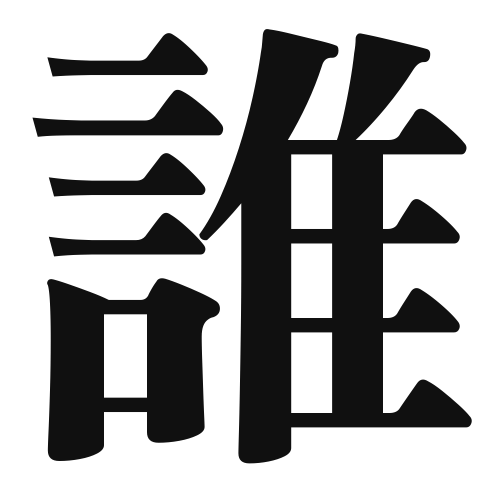1. Overview of Meaning
The kanji 誰 (pronounced “dare”) means “who.” It is used to inquire about the identity of a person or to ask questions regarding someone’s name or role.
2. Formation and Radicals
The kanji 誰 is a combination of two components: the radical 言 (which means “speech” or “words”) and the phonetic component 隹 (which represents a bird). This combination suggests a connection between speech and the act of identifying or asking about someone.
The radical 言 is commonly associated with words and language, highlighting the communicative aspect of asking “who.”
3. Examples of Usage
Common words and phrases that include 誰 are:
- 誰か (dareka) – someone
- 誰も (daremo) – no one
Example sentences in daily conversation:
- あの人は誰ですか? (Ano hito wa dare desu ka?) – Who is that person?
- 誰か手伝ってくれますか? (Dareka tetsudatte kuremasu ka?) – Can someone help me?
4. Synonyms and Antonyms
Similar kanji with related meanings include:
- 何 (nani) – what (used to ask about things rather than people)
Antonyms or contrasting kanji include:
- 皆 (mina) – everyone (implying a group rather than an individual)
5. Cultural and Historical Background
The kanji 誰 is deeply rooted in Japanese culture, where asking about someone’s identity is a common social practice. It reflects the importance of relationships and social interactions in Japanese society.
Proverbs and idiomatic expressions that include 誰 are:
- 誰にでもあること (Dare ni demo aru koto) – Something that can happen to anyone, emphasizing shared human experiences.
